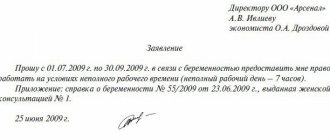- 15661
- Academy of Winners
- Success
Business
Today, the principle of an 8-hour working day with one lunch break can be called outdated. Then how much does a person need to work to be as productive as possible?
This question is a little one-sided, so we will look at it from a different angle: how best to use working time with maximum efficiency? At the same time, the duration of work per day is not as important as modern research shows.
What is productive work
According to the top manager, in the context of a corporate environment, work that requires maximum concentration, attention and mental work from a person is considered productive. These activities can include anything such as writing a letter, generating ideas, developing a business plan, exploring new problems, and solving current problems. In each case, you can apply a different amount of effort required to achieve the result.
How to figure out how long you're actually working
As Wilver points out, there's a big difference between time spent in the office and productive hours: “When a person says they work 60 hours a week, that actually means they spend that amount of time, for example, sitting at their computer. However, this does not mean that he works hard for the entire 60 hours.” To determine your productivity, the top manager suggests breaking down tasks into small stages and recording how much pure time it takes you to complete each of them. Then these indicators are summed up, and the final productivity result for the day comes out. The obtained data can be taken into account independently or using special programs (time trackers) like Toggl, RescueTime or ATracker.
LifeScience and life: How many hours a day can you work effectively
Alexandra Savina
SCIENTIFIC DATA EXISTS NOT ONLY IN THE SPHERE OF THEORY: many of them are quite capable of improving our lives or at least explaining how it works. Today we’ll figure out how long a working day should last and how to make it more productive.
When we spend more hours at work, we don't necessarily perform better—there's a limit to our productivity
Most of us are used to working five days a week, eight hours a day, from nine to six, with an hour break for lunch - but is this the ideal work schedule? Researchers often question the established pattern. For example, economist John Maynard Keynes predicted back in 1928 that by 2030 a 15-hour work week would become the norm, and in the 1960s Herman Kahn said that in the future Americans would have 13 weeks of vacation a year, and they would work only four days a week.
In the spring, data from a Swedish experiment was published that questions the classic model: employees at Svartedalens Hospital switched to a six-hour working day, while receiving the same salary. In the first year, the program helped achieve excellent results: according to the report, employees began to take less time off work, their productivity and health indicators increased, and they began to work more efficiently. Several other Swedish companies have implemented a similar model.
Proponents of this approach say that when we spend more hours at work, we do not necessarily work better - there is a certain limit to our productivity. Data from a study published in the American Journal of Epidemiology, for example, found that employees who worked more than 55 hours a week performed less efficiently on tests than those who worked 40 hours. This idea seems obvious, but it is no less important: we know from our own experience that overwork has a bad effect on our health and productivity. Scientists agree: A study published last year in the Lancet found that people who work 55 hours a week or more have a 33% higher risk of stroke and a 13% higher risk of coronary artery disease. hearts compared to those who work the standard 35–40 hours. Researchers say they can't say for sure that overworking causes stroke and heart disease - but there is a link between the two.
In addition, some scientists note that we may benefit from starting work later. Research data from two years ago showed that the later we come to the office, the better sleep we get: a person who comes to work an hour later sleeps 20 minutes longer, and every additional hour increases sleep time by another 20 minutes
Finally, some researchers say that what matters for greatest productivity is not the length of the workday, but how we structure it. For example, according to an experiment conducted last year, it is most productive to work for 52 minutes and then take a 17-minute break.
How long can an employee remain productive?
According to the US Bureau of Labor Statistics, the average office worker's productivity is about three hours a day. This is due to the fact that employees have a habit of being distracted by browsing social networks, reading the news, or communicating with colleagues. Similar indicators are presented in the RescueTime study for 2017: service analysts note that the average level of productivity does not exceed 2.5 hours per day.
According to Wilver, these data confirm that no one person is able to be at their best all day long. In addition, she hopes that these statistics will help suspicious employees get rid of complaints about themselves: “Don’t think that your colleagues are able to work productively for 8 hours a day. The reason for your anxiety is that you are trying to live up to high standards that you create for yourself.”
How to work correctly
You can work for an hour , devoting all this time to the main task. Then you need to rest for 15-17 minutes .
What should a vacation be like?
This is also an important question! Rest should help you completely mentally get away from your main job . You can take a walk, chat on abstract topics with colleagues, and do a little warm-up of your joints if you work while sitting.
What not to do while on vacation?
There is no need to try to change one work task to another. This is done by those who do not quite correctly understand the saying: “The best rest is a change of activity.” How long do you need to work continuously per day? 50-60 minutes!
And also, you shouldn’t go to your social pages “for a short time.” networks - this will not be able to recharge you for the next hour of activity.
Upper limit of productivity
Wilver notes that the performance ceiling can vary depending on the nature of the job, the skill level of the employees, and the mental effort required to achieve the result. For example, representatives of Amazing Marvin say that a 3-4 hour period of productivity is the norm for them, and 6-7 hours is a great achievement. A similar position is held by entrepreneurs, programmers and writers, whose opinions the top manager became acquainted with during the study. Geniuses are no exception: it is known that the French mathematician Henri Poincaré worked no more than four hours a day. According to him, time spent beyond this norm was never productive. Wilver notes that knowledge of peak performance can help managers better plan for completing a particular task.
The science
First, official research supports Alex Pang's claim. Have you heard of the 10,000 hour rule? (referring to Malcolm Gladwell's theory that it takes 10,000 hours to be successful - editor's note) You might think that the need for so much practice contradicts the idea that our brains are limited by four hours of mental work a day . But, according to Berkeman, when the same scientists who conducted the study from which Malcolm Gladwell derived his famous formula studied the schedules of violinists, they found that each practice was strictly time-limited.
Top performers may accumulate an impressive amount of practice, but science shows that they only work for no more than four hours at a time.
The value of intellectual resources
The productivity of each employee primarily depends on his intellectual resources, says the founder of Amazing Marvin: “Imagine that you are an aspiring author who needs to write a novel. Without experience, you will spend a lot of mental effort on it, while a professional will cope with this task much faster. At the same time, even a master is not able to come up with page after page without interruption, since extreme concentration and creative thinking take a lot of energy.” The above example indicates that we are limited in our resources: a person cannot constantly be under tension - he needs rest and replenishment of energy. According to Wilver, the body's recovery is facilitated by a daily routine, as well as maintaining physical and mental health.
Duration of the working week according to the Labor Code of the Russian Federation
The Labor Code states that the employer can independently set the schedule at the enterprise, but at the same time he is obliged to make sure that the working week for each employee does not exceed 40 hours.
It should be borne in mind that this figure is final; it does not matter how many days a week a person is at work. Adjustment of time is possible in accordance with the schedule, but each overtime must be paid twice.
Almost all enterprises in the country have a five-day working week, but there are organizations in which activities must be maintained 6 or 7 days a week. In this case, salaries are increased, and people are recruited to work two or three shifts on different days of the week.
A normal work shift lasts 8 hours in a five-day week and 6 hours in a six-day week. Overtime must be paid, and for overtime on a weekend, a person must receive double the amount.
Is it worth striving for the maximum every day?
The 3-4 hour productivity window above does not mean you have to meet that metric. The top manager recommends that each person determine his own adequate level, which may vary depending on the nature of the task and physical condition: “Let's say today you worked at your maximum for 10 hours. This means that tomorrow you will most likely only last half a day, since you will not have time to recover properly.” As Wilver notes, examples of this behavior are quite common: there are probably people you know who can work two or three days on end, but then completely drop out of the work process by the end of the week. To prevent this from happening, the top manager advises you to independently determine the optimal amount of time during which you can maintain your productivity every day, without torturing yourself physically and mentally.
Is it possible to work without days off?
If the company has irregular hours, overtime may become a frequent occurrence. But even in this case, the rights of citizens must be respected.
Thus, it is impossible to force a person to work 7 days a week without days off, and all dates when a person worked on the sixth day, if this is not provided for in the employment agreement, are recorded, and in the future you can request an additional day off.
Weekends are those days on which the employee has the right to take continuous rest without engaging in work duties. Sunday is recognized as a general holiday, but in some companies, due to the specifics of work, weekends may fall on other days of the week.
They can be established by an employment contract or by the internal regulations of the enterprise.
Every week the employee has the right to uninterrupted rest for 42 hours. Work is prohibited during this time.
If an employer needs to involve an employee in performing duties on a day off from work, it is necessary to take into account some requirements.
Such involvement is possible only at the request of the employee himself, and in the event that the 42 hours free from work are postponed to another day. The same procedure applies when working on public holidays established by the State.
Personal productivity period
To identify your personal productivity period, you need to monitor your behavior and state throughout the day: keep a record of how you feel in the morning and evening, how long you can concentrate on a task without interruption, and how much effort it costs you. Don't be discouraged if your numbers turn out to be low—you can use the data you receive to improve your performance. Also, don’t forget that it’s always more difficult for beginners, so don’t beat yourself up if you don’t succeed at something the first time. According to Wilver, time spent at work does not always indicate high productivity - the main thing is what results you achieved during those hours.
As for people boasting about their 60-80 hour work weeks, the manager urges to be skeptical of such claims: “Most likely, such a person does not track his productivity. For him, time spent in the office equates to productivity, but we know that's a misjudgment. No matter how concentrated an employee is, he will always be distracted by correspondence, phone calls and communication with colleagues. Of course, composing a template letter can also be called work, but we will not count it as an asset.” In addition, Wilver notes, people sometimes lie to make themselves and others look better. Therefore, you should not focus on others - better understand your personal productivity.
Benefits for businessmen
How did other countries approach the question of how many hours to work? For example, in the Netherlands the working week lasts 27 hours, in France – 35. At the same time, a long “40-hour working day” is beneficial for large businesses. Due to lack of time, people working around the clock are more willing to pay for expensive entertainment and amenities in order to get some rest.
If, when deciding how many hours a person should work, large corporations reduced the length of the workday, you and I would stop purchasing a lot of unnecessary things, as we do now. As a result, the country's economy would collapse.
Daily Optimal Productivity
According to the founder of Amazing Marvin, if you spend 5-6 hours a day on current tasks, then this is a good indicator of efficiency. For projects that require serious mental expenditure, it is 3-4 hours a day. At the same time, it is important to remember that each of us is limited by our daily intellectual resources, so the more effort the work requires, the less time we are able to devote to it. In addition, Wilver reminds us how important it is to determine your productivity period in order to stay in good shape every day and avoid burnout.
Hard work is the most effective competitive advantage






